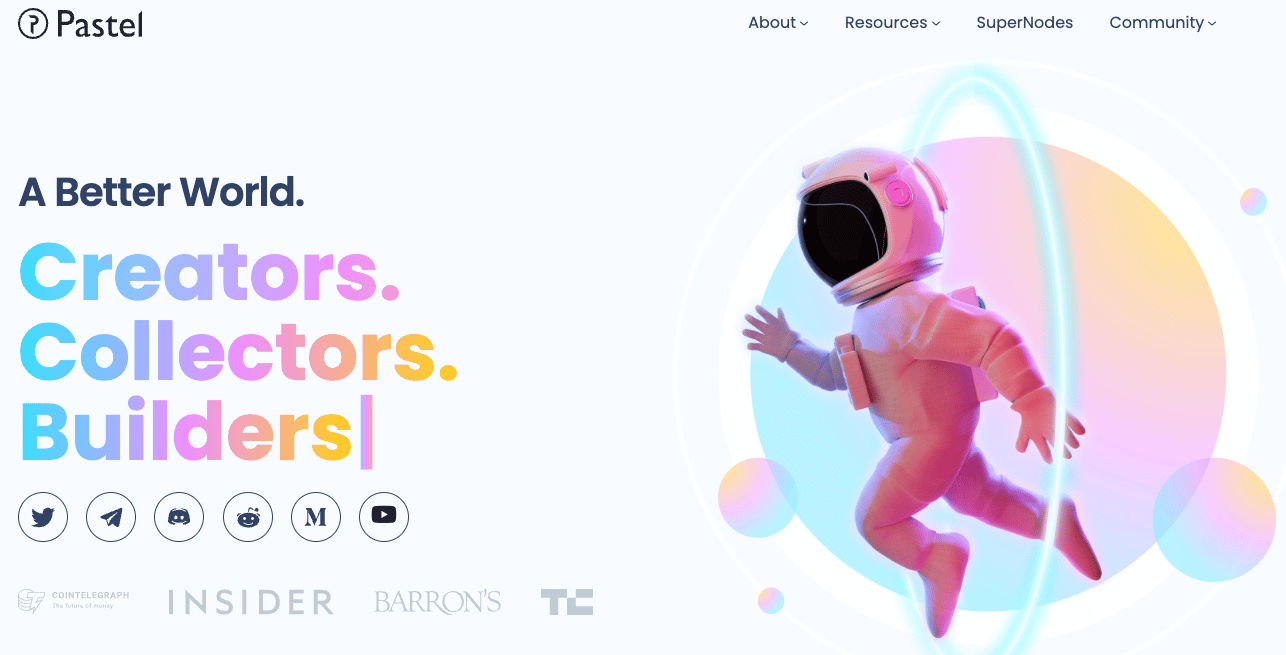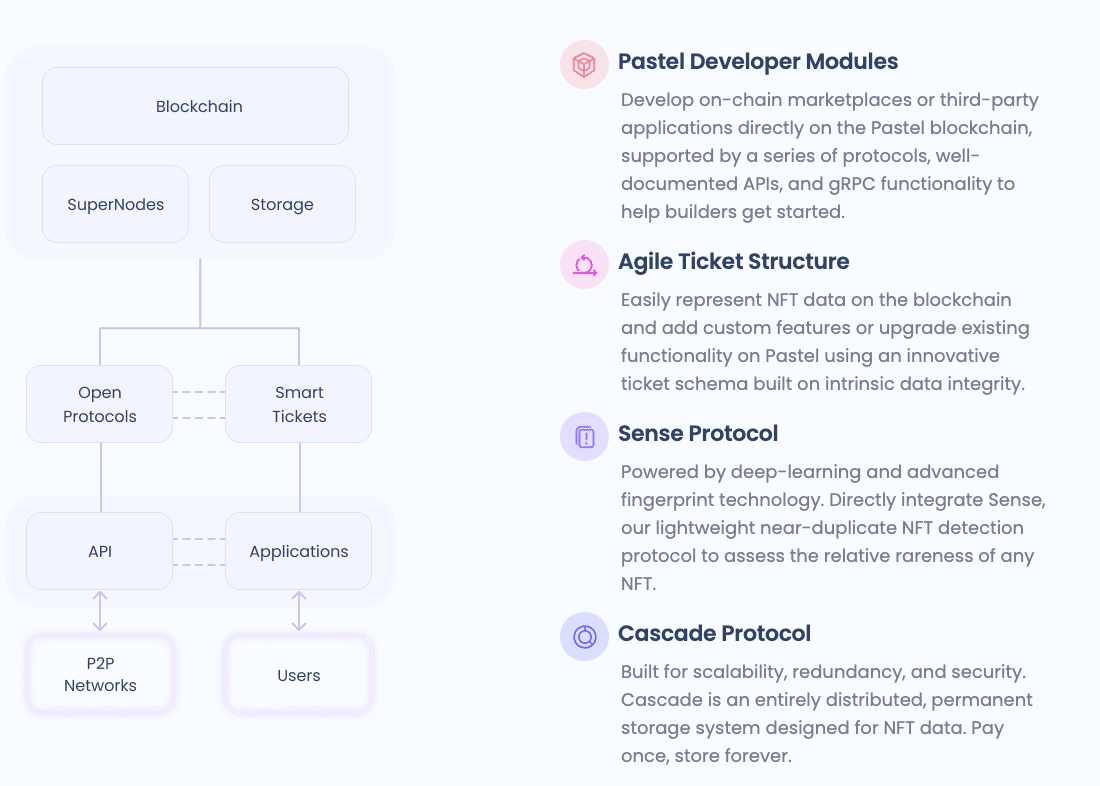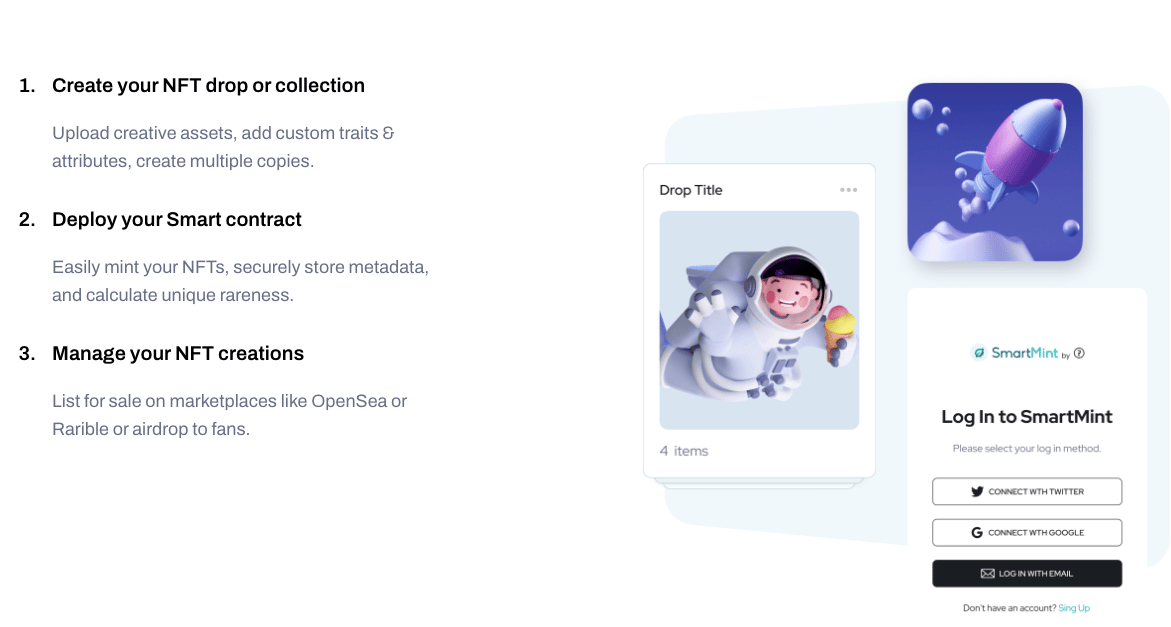Anthony Georgiades is the Co-Founder of Pastel Network, a fully decentralized, developer-friendly layer-1 blockchain serving as the preeminent protocol standard for non-fungible tokens (“NFTs”) and Web3 technology
Georgiades began building Pastel with Co-Founders Jeff Emanuel and Alexey Kireyev in 2018, a time when NFTs were still in their infancy.
Pastel infrastructure enables existing layer-1 blockchains, decentralized applications, or third-party enterprises to protect creators and collectors. From digital collectibles & media to documents & applications, users and developers are able to certify asset rareness and truly store data forever. Lightweight protocols delivered by interoperable open APIs such as Sense–combats fraud and copymint issues through a revolutionary near-duplicate detection system that assesses the relative rareness of NFTs using ML algorithms–and Cascade–a decentralized storage layer that brings true NFT permanence onchain–can be easily integrated across existing networks. A wide range of Web3 applications can be built directly on the Pastel Network, enabling developers to enjoy the broader ecosystem’s scalable registration features, storage processes, and security.
Pastel has partnered with a variety of native layer 1s and layer-2 dApps, including Parity Technologies (Polkadot), Ava Labs (Avalanche), Polygon Studios, onXRP.com, Nervos, and TomoChain.
“NFTs are a great application of blockchain, and we’ve become intimately familiar with the shortcomings of the legacy, general-purpose layer-1s,” says Georgiades. “This isn’t to bash or lampoon networks like that of Ethereum–they’ve done an incredible job at showcasing the efficacy of NFT technology over the past few years. We’re firm believers that this industry is just getting started, and to onboard the next waves of NFT collectors and innovators, we need better tooling.”
NFT creators and collectors alike are painfully familiar with the network challenges hampering their NFT experience– fees in the hundreds and sometimes thousands of dollars aren’t uncommon during moments of peak traffic during sought-after NFT mintings.
“NFT platforms have come a long way since 2018 thanks to innovation in user-friendly marketplaces like OpenSea, but launching your own NFT can be particularly daunting if you don’t come from a strong technical background,” comments Georgiades.
While NFTs have given creators new worlds of possibility, simply creating the art isn’t enough. Creating the smart contract and having the NFT minted (and listed) require at least an intermediate-level familiarity with NFTs and blockchain at a programmatic level.
“We thought deeply about the challenges surrounding NFT creation; talented creators often find themselves mired in various responsibilities, many of which may not be their strong suits,” posits Georgiades. “They start off with a great idea for a fun project. They soon find themselves doing everything from smart contract development to NFT management, or at least working with multiple parties to fill their technical gaps.”
This is part of the inspiration behind Pastel’s new SmartMint platform.
“SmartMint addresses these challenges by offering creators a no-code NFT minting platform that is accessible to anybody,” explains Georgiades. “Supported by the highly robust and purpose-built Pastel Network, SmartMint makes it easy for any creator to just upload their files and add custom attributes and properties. Next, they just select the network they want to mint their NFT on, and they’re off to the races.”
SmartMint is the first consumer product developed by Pastel. It is even more impactful because it leverages Pastel’s prior innovations (Sense and Cascade) to provide a complete end-to-end service.
Sense can detect near-duplicate NFTs and provide rareness scores and authenticity certification to any NFT run through it. And, creators don’t need to worry about running their work through Sense because it has already been seamlessly integrated into SmartMint.
Cascade is Pastel’s decentralized storage layer that permanently stores NFT data and metadata, so creators never have to fret about losing access to their works. Again, already integrated into the SmartMint platform for convenience and ease of use.
Final Thoughts: Smart Mint and NFT Creator Autonomy
Once the creator goes through the above steps, they can list the NFTs for sale on popular marketplaces like OpenSea and Rarible, or even on their own website.
“We believe that creators deserve a level of convenience and optionality when minting NFTs, rather than navigating convoluted processes on any third-party marketplace,” says Georgiades. “While SmartMint makes it easy for anyone to mint an NFT, Pastel’s Sense protocol offers considerable protection to consumers by combating copymint and fraud through its revolutionary near-duplicate detection system.”
“Even if SmartMint users list their NFTs on secondary marketplaces to sell them, they still have full ownership of their smart contracts. If this were done on a marketplace, the marketplaces would typically retain ownership and make it very difficult for creators to list on other marketplaces.”
SmartMint currently supports PNGs, JPGs, SVG, GIF, and .MP4 files. Access and membership to the SmartMint platform is free, but users will need to pay gas fees in order to mint their NFTs on one of the supported networks (currently Ethereum, Polygon, and Solana–with plans for Avalanche, Cosmos, Kadena, and Oasis in the near future).
More detailed information about how Pastel Network functions can be found here.
The post Pastel Co-Founder Anthony Georgiades on the SmartMint Launch appeared first on CoinCentral.






















